COP16: What happened at the 2024 UN Biodiversity Conference?
TNC Agenda at COP16
Learn about our agenda of events in this important conference on biodiversity, together we are #HopeForNature
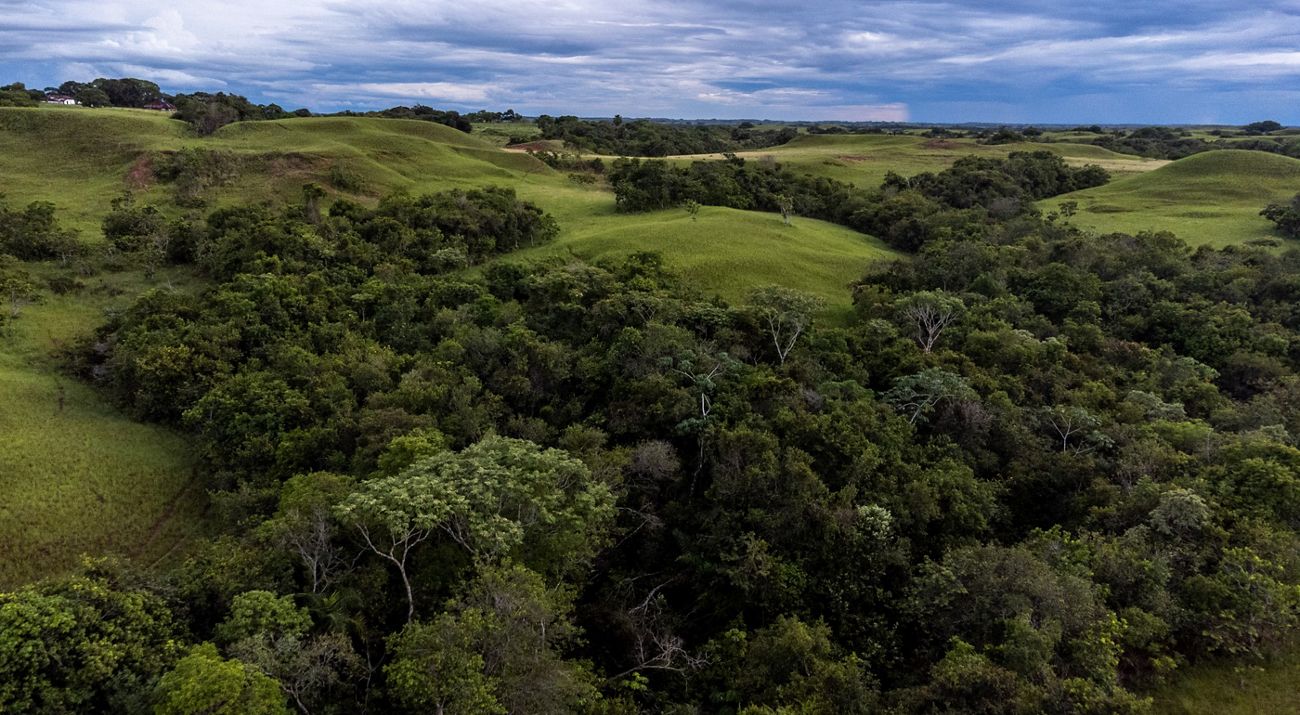
Following the historic adoption of the Kunming-Montreal Global Biodiversity Framework, representatives from the 196 countries that are part of the Convention will reconvene at COP16. The UN Biodiversity Conference will take place October 21-November 1, in Cali, Colombia, the world’s third most biodiverse country.
TNC will participate in official sessions and side events taking place in the Blue Zone, located at the Valle del Pacífico Event Center (Cali – Yumbo Highway). This is the formal space for conferences and negotiations managed by the Convention on Biological Diversity (CBD).
In the Green Zone, TNC is offering a diverse lineup, featuring Colombia’s Orinoquia region. Highlights include expert panels, lectures, the premiere of the documentary series “Reto Aventura” (Adventure Challenge), and the photo exhibition “Orinoquia, Llanero Legacy,” showcasing the magnificent Manacacías Mountain Range.
These events will take place at Casa Humboldt (located at the Comfandi Cultural Center, Cl 8 #6-23), which offers over 100 spaces. TNC, along with other civil society organizations, research institutions, communities, and multilateral organizations, will be part of the program.
Register for TNC Events at COP16
RegisterGreen Zone Sessions
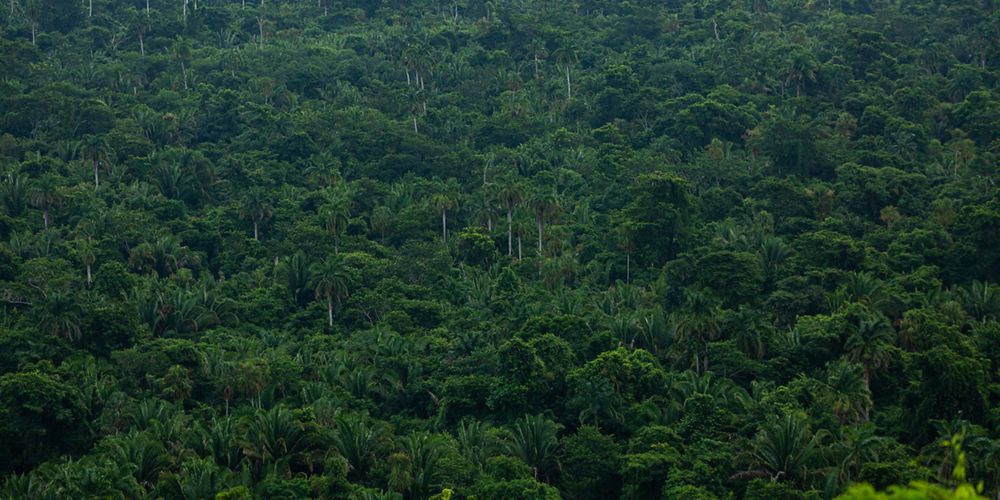
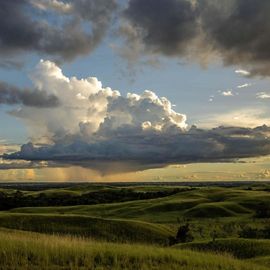
Casa Humboldt Directions to TNC Green Zone events at Casa Humboldt. All listed events require registration, except for the photo exhibition, which is open to all visitors.
Permanent photographic exhibition
“Orinoquia, Llanero legacy”
Date: Monday, November 21st to Friday, November 1st
Place: Orinoco Auditorium Hall, Casa Humboldt (1st floor)
Discover Colombia’s newest National Natural Park, Serranía de Manacacías, through the lens of Colombian photojournalist Federico Rios (2024 Pulitzer Prize finalist). The exhibition showcases 68,000 hectares of protected neotropical savannas in the heart of the Orinoquia, connecting the Andes with the Amazon.
Free admission. No registration required
Manacacías Through the Lens of Federico Ríos
Visit us at Casa Humboldt and explore the rolling savannas of the Orinoquia through the images of renowned Colombian photographer Federico Ríos.
Lear more about Manacacías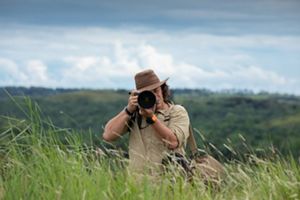
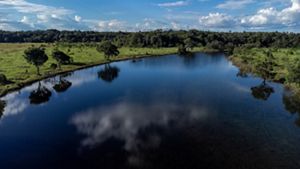
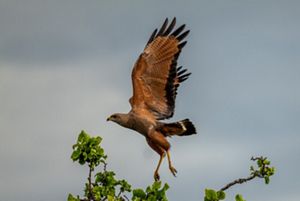
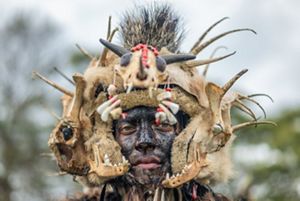
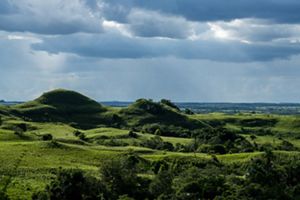

Federico Ríos: Capturing the essence of Manacacias © Rodrigo Durán

Manacacías: : Through Federico Ríos’ lens. © Federico Ríos / TNC Colombia

Biological Corridor: Manacacías connects the Andes to the Amazon © Federico Ríos / TNC Colombia

Llanaro Pride: Honoring the people of Manacacias © Federico Ríos / TNC Colombia

Manacacías Savanas: Rolling expanses characteristic of the region. © Federico Ríos / TNC Colombia
Calendar of Events at Casa Humboldt
Sunday, October 20
-
Harvesting Pluriethnic and Biodiverse Futures Youth Summit
Youth from Colombia and around the world will weave collective visions and actions for the stewardship and conservation of biodiversity.
Date: Sunday, October 20
Location: Sinú Auditorium, Casa Humboldt (2nd floor).
Tuesday, October 22
-
6:30 PM – 8:30 PM Weaving an Intersectional and Intergenerational Movement for Biodiversity and Climate Action
Join us in an inclusive and multi-stakeholder dialogue to explore synergies and challenges in biodiversity conservation, climate action, and gender equality.
Date: Tuesday, October 22Time: 6:30 p.m. – 8:30 p.m.
Location: Bita Auditorium, Casa Humboldt (2nd floor)
Wednesday, October 23
-
Human Rights and Gender in National Biodiversity Plans (NBSAP)
Panel, event closed
Considering gender dimensions in decision-making can lead to positive outcomes for biodiversity and gender equality. Women often play a vital role in managing natural resources and sustainable production. This panel will discuss how gender is being considered in Target 23 of the NBSAPs of some countries, and challenges for its implementation.
Date: Wednesday, October 23
Time: 8:00 a.m. – 12:00 p.m.
Location: Atrato Auditorium, Casa Humboldt (2nd floor)
Contact: koliveira@tnc.org -
Private Sector: A Key Player in Nature Restoration
Panel
What is the role of businesses in ecosystem restoration? How can such activities strengthen businesses? How do restoration actions contribute to Colombia's NDC goals? These are some of the topics that will be addressed by representatives from academia, decision-makers, business leaders, and TNC.
Date: Wednesday, October 23
Time: 3:00 p.m. – 4:30 p.m.
Location: Atrato Auditorium, Casa Humboldt (2nd floor)
Thursday, October 24
-
Inauguration of the Photo Exhibition “Orinoquia, Llanero Legacy”
Panel and Guided Tour by the Exhibition Author, in Partnership with Colombia’s National Natural Parks (PNN)
Join us to hear diverse perspectives on the protection of 68,000 hectares of rolling savannas, now part of the Serranía de Manacacías National Natural Park. Attendees will discover the natural, ecological, and cultural beauty of this region, located in the heart of the Orinoquia. Learn about the future visions for this territory that bridges the Andes and the Amazon.
Date: Thursday, October 24
Time: 6:00 p.m. – 8:00 p.m.
Location: Orinoco Auditorium, Casa Humboldt (1st floor)
Friday, October 25
-
Women in Conservation: Protecting the World's Natural Savannas
Panel
Women leaders from savanna regions around the world will discuss the role of women in conserving this ecosystem, and the importance of interdisciplinary and trans-regional approaches to achieve lasting conservation results.
Date: Friday, October 25
Time: 8:00 a.m. – 10:00 a.m.
Location: Atrato Auditorium, Casa Humboldt (2nd floor) -
Paz de Ariporo: An Example of Sustainable Cattle Ranching for Savanna Conservation in the Orinoquia
Panel discussion
Representatives from the local community of Paz de Ariporo, along with institutional and international cooperation, will present the reasons why the Flooded Savanna Grazing Landscape should be recognized as a Globally Important Agricultural Heritage System (SIPAM).
Date: Friday, October 25
Time: 2:00 p.m. – 3:00 p.m.
Location: Atrato Auditorium, Casa Humboldt (2nd floor)
Saturday, October 26
-
“Reto Aventura” Premiere
Ted Talk and Short Film Premiere, in partnership with Toyota and Warner Bros. Discovery
Experience the Orinoquia like never before. In the docu-series “Adventure Challenge Orinoquia,” we will navigate the mighty rivers of Colombia’s eastern plains, traverse its mountains, ride through its savannas, have close encounters with large caimans, and embark on a llanero safari.
Date: Saturday, October 26
Time: 6:00 p.m. – 8:00 p.m.
Location: Orinoco Auditorium, Casa Humboldt (1st floor)
Monday, October 28
-
Subnational Contributions to the Convention on Biological Diversity (CBD) at COP16
Conference - Closed event
This event will emphasize the critical role of Brazilian states in advancing the 2030 Global Biodiversity Framework (GBF) under the UN Convention on Biological Diversity (CBD) established at Kunming-Montreal. It aims to spotlight the integrated engagement of these states in the global biodiversity agenda, showcasing their contributions alongside partners such as TNC-Brasil, WWF-Brasil, and the Ministry of the Environment (MMA), in fulfilling both Brazilian and global biodiversity commitments.
The event will provide an update on the progress made by Brazilian states in implementing the GBF, with a focus on integrated vertical, horizontal, and temporal planning mechanisms. It will also highlight urgent biodiversity challenges while addressing the mobilization of resources and partnerships necessary to meet the 2030 targets, as the world navigates ongoing environmental shifts and tight timelines.
Date: Monday, October 28
Time: 8:00 a.m. – 6:00 p.m.
Location: Auditorium (2nd floor).
Blue Zone Sessions
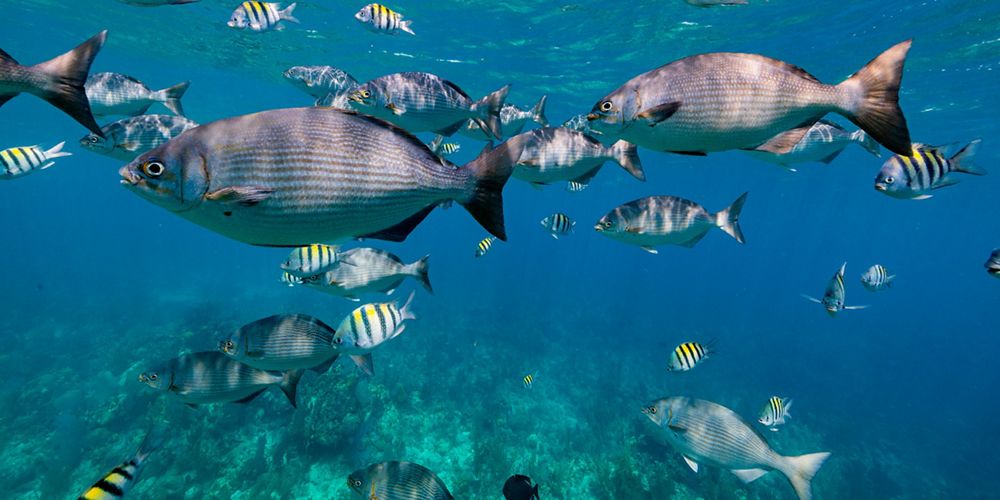
Nature Positive Pavillion
Monday, October 21
-
#5792: The Action Initiative for KMGBF High-level Side Event
Highlight the positive progress made since launch of the Action Initiative for KMGBF, in terms of practical actions taken by China, as the COP15 President, in cooperation with other Parties and stakeholders to promote the implementation of the KMGBF.
Seize the critical moment of the opening of COP16 to exchange views on key negotiation issues for COP16, create a positive momentum and inject political impetus for launching the negotiation work for COP16.
Leverage the platform of the Action Initiative to chart the direction of global biodiversity governance beyond 2030 and promote dialogue and cooperation among relevant stakeholders to assist parties and stakeholders in implementing the long-term vision of the Convention.
By involving high-level representatives from key Parties and members of the Action Initiative, while also being open to all COP16 participants, this high-level side event aims to provide political leadership to drive progress on key issues at COP16 and engage in discussions on the direction of global biodiversity governance beyond 2030. During the event, China, as the COP15 Presidency, plans to release the COP15 Presidency Report.
Date: 21 October
Time: 13:20-14:40
Location: Cano Cristales - CEE meeting room
Plaza One -
Tackling Biodiversity and Climate Change Together: Risk Analysis, Opportunities, and Solutions
This roundtable will bring together representatives from the scientific community, decision-makers, and the business sector to discuss the interconnections and joint solutions to address the biodiversity and climate crises. We will hear different perspectives on the financial challenges faced by various industries and governments and demonstrate that meeting our Nationally Determined Contributions (NDCs) is not only feasible but a necessity that benefits society as a whole. The event will showcase practical cases and recommendations for business and industry leaders to rise to the challenge of aligning the goals of the CBD and the UNFCCC.
Location: Main Stage
Tuesday, October 22
-
#5694: Biodiversity conservation models and monitoring technologies for the Kunming-Montreal Global Biodiversity Framework
The 15th Conference of the Parties to the Convention on Biological Diversity (COP15) adopted the "Kunming-Montreal Global Biodiversity Framework", which clarified the "3030" and other ambitious conservation goals. The realization of the "3030" goal requires an innovative biodiversity conservation model, and emphasizes the important role of monitoring in achieving the goal. This side event plans to hold a thematic side event around the biodiversity conservation model and monitoring technology required for the "Kunming-Montreal Global Biodiversity Framework" goals, conduct in-depth discussions, and share China's ecological red line protection model and technical tools, remote sensing monitoring and artificial intelligence and other monitoring technology application cases, etc., to promote the implementation of the "Kunming-Montreal Global Biodiversity Framework" goals.
Date: 22 October 2024
Time: 11:40-13:00
Location: Paramos - NGOs meeting room
-
#6606: Indigenous-led PFPs in Canada: A Transformative Model for Conservation and Stewardship A Panel Presentation
An official side event highlighting recent successes achieved through multiple Indigenous-led Project Finance for Permanence Initiatives in Canada.Date: 22 October 2024
Time: 11:40-13:00
Location: Paramos - NGOs meeting room
-
Indigenous Contributions to Biodiversity and Climate Protection: Governance Tools in Brazil and Colombia for Managing Territories
This roundtable will bring together indigenous leaders and government representatives from Colombia and Brazil, countries leading the way in COPs on biodiversity and climate. The goal is to foster a high-level discussion on how indigenous governance tools (such as management and life plans) contribute to biodiversity protection and serve as essential mechanisms for channeling funds to these territories. The discussion will focus on enhancing direct access to biodiversity funds for IPLC groups. Representatives from the Brazilian indigenous government, indigenous organizations from Brazil and Colombia, and the GEF will share their insights.
Location: Secondary Stage
Nature Positive Pavilion
Events Center -
Reception: Art for Social Justice - Awakening the World to Inspire Change
Art has the power to vividly depict the beauty and fragility of our natural world. Join us in celebrating the culture and conservation of Colombia’s Orinoquia region, and enjoy the work of photojournalist Federico Ríos, a 2024 Pulitzer Prize finalist.
The vast tropical savanna of eastern Colombia, known as Orinoquia, is one of the most biodiverse regions on the planet. It is home to unique ecosystems, species, and cultures found nowhere else. This region also presents a unique opportunity to shape the future of our world. Join The Nature Conservancy in celebrating the new Serranía de Manacacías National Natural Park, featuring images by renowned Colombian photojournalist Federico Ríos. His work captures the essence of endangered ecosystems and species, the beauty of the culture, and raises awareness about the urgent need to protect biodiversity.
Location: Main Stage
Nature Positive Pavilion
Event Center
Wednesday, October 23
-
How Aquatic Food Systems Can Contribute to the Global Biodiversity Framework
The health of our oceans, rivers, lakes, and wetlands—and the livelihoods of millions of people worldwide—depend on well-managed fisheries and aquaculture. However, 90 percent of global fisheries have reached their maximum sustainable levels, and the rapid expansion of poorly located and managed aquaculture projects has worsened impacts on marine and freshwater ecosystems. By applying science-based management approaches, leveraging market power, and engaging communities and governments, panelists will discuss how we can not only preserve what remains but also restore what has been lost.
This session is a call to action, emphasizing how and why governments should consider aquatic food systems as a crucial pathway to achieving their national biodiversity strategies and action plans.
Location: Secondary Stage
Nature Positive Pavilion
Event Center
Thursday, October 24
-
Blue Success: How Ocean Action Contributes to the Global Biodiversity Framework
The ocean is integral to the Kunming-Montreal Global Biodiversity Framework, influencing nearly all its targets. However, historically, the ocean has been underrepresented in National Biodiversity Strategies and Action Plans (NBSAPs), leading to slower progress for marine ecosystems compared to terrestrial ones. As countries finalize their new NBSAPs, there is an opportunity to reverse this trend. In this event, countries like Tanzania, Chile, and others will share their successful ocean conservation actions, which can be replicated globally to support decisive ocean action.
Location: Secondary Stage
Nature Positive Pavilion
Event Center
Saturday, October 26
-
Women-Led Conservation: Protecting the World’s Savannas
This event will spotlight the crucial role of women in conserving savannas for biodiversity and climate resilience. It will gather a diverse group of women leaders, including producers, scientists, and indigenous representatives from Colombia, Argentina, Brazil, Africa (to be confirmed), Mongolia (to be confirmed), and Oklahoma (to be confirmed). They will share experiences and discuss their contributions to savanna ecosystem conservation. The focus will be on fostering collaboration and exchanging ideas among these diverse groups, emphasizing the importance of interdisciplinary and trans-regional approaches to achieve lasting conservation outcomes.
Location: Secondary Stage
Nature Positive Pavilion
Event Center -
Aligning corporate action, monitoring, evaluation, and learning with the GBF and NBSAPs
Practical guidance is essential to help companies develop action plans and strategies for monitoring, evaluation, and learning that align with the Global Biodiversity Framework (GBF) and National Biodiversity Strategies and Action Plans (NBSAPs). COP16 presents an opportunity to bridge the gap between public and private sector actions, a gap that threatens the necessary collaboration to address the biodiversity crisis. TNC will lead a workshop for government and private sector representatives to pilot concrete measures that help companies align with the GBF through evidence-based biodiversity planning and progress tracking. Participants will help shape a toolkit on this topic for future use.
Location: Main Stage
Nature Positive Pavilion
Event Center
Sunday, October 27
-
Achieving Lasting and Scalable Change for Biodiversity: Expanding Corporate Action in Landscapes
TNC understands that enduring change happens when initiatives are scaled across entire ecological systems, maximizing conservation and management efforts at regional and national levels. This approach often contrasts with the specific supply chain strategies typically adopted by companies. In this session, TNC will present findings from a new report that highlights how landscape approaches enable companies to meet multiple sustainability goals. The discussion will then explore the opportunities and challenges in the Orinoquia region, featuring insights from businesses, commodity traders, industry associations, and conservationists crucial to its preservation and development. By focusing on Colombia, the host country, we aim to spark interest and action.
Location: Secondary Stage
Nature Positive Pavilion
Event Center
Monday, October 28
-
#5697: Scaling up nature positive investment in Asia and the Pacific
Finance for nature continues to be significantly below what is required to bend the curve and restore biodiversity at scale. On Finance Day at COP16 this session will look to explore progress in implementation of Goal D and Target 19 of the Kunming – Montreal Global Biodiversity Framework for mobilizing finance for nature and particularly the role of partnerships in scaling the work among multilateral and bilateral agencies, foundations, and civil society organizations.
At the event, the Asian Development Bank (ADB) will launch the first bank's Nature and Biodiversity Bond, a thematic bond focusing on Nature based Solutions. Building on the experiences of Green and Blue Bonds, the Nature and Biodiversity Bond will mobilize private capital for investment projects related to nature conservation and mainstreaming biodiversity in production sectors.
The event will also include a panel discussion among different partners, including speakers from AFD, GEF and TNC. They will inform on variety of different innovative financing mechanisms and share successes and challenges to mobilize both public and private finance for nature. Developing countries continue to struggle to find financial resources to support biodiversity focused initiatives even when there is clear evidence that investing in nature can deliver for climate and livelihoods. This session will therefore look to examine new and innovative financing mechanisms and grant resources that can be accessed by the countries, such as the Nature Solutions Finance Hub that was launched by ADB with partners and aims to mobilize USD 5 billion by 2030 to reduce the financial gap for biodiversity. Experiences at the country level will also be shared, including by the government of China and the Philippines to provide their perspectives on the challenges and opportunities, and what can be done further to fill the funding gap. GBF Target (s) This event is specifically focused on Goal D and Target 19 of the GBF on scaling up nature positive finance. The session will also look to cover Target 18 on incentives and subsidies for activities harmful to biodiversity and Targets 14 and 15 on policies, regulations, planning and disclosure are also relevant to this event. Target Audience This side event as proposed on the Finance Day at COP16 and will contribute to the discussion and explore this topic in detail. It is critical that there is strong engagement with the finance sector to address the continuing biodiversity loss. The event will be of value to Parties, international organizations, civil society the private sector, particularly other financial institutions. Participants will learn about the overall situation analysis with respect to funding for nature and will then be given some examples of the innovative finance mechanisms that have been deployed to date and the opportunities that may be available to tap into these. Program Time Segment Speakers / Details 1.15 Introduction Ms. Yoko Watanabe, Director Environment, Climate Change Department, ADB 1.25 Announcement Launch of ADB Thematic Biodiversity Bond 1.35 Keynote Presentation The Nature Conservancy 'Financing Nature: Closing the Global Biodiversity Financing Gap - An Update' 2.00 Panel Discussion Moderator: ADB Panelists: AFD Philippines Government Global Environment Facility People's Republic of China Government The Nature Conservancy 2.40 Closing Remarks NatureFinance.Date: 28 October 2024
Time: 16:30-17:50
Location:
Farallones - Youth meeting room
Tuesday, October 29
-
#6149 Innovative Finance for Climate and Biodiversity Goals: developing long-term solutions to bridge the financial gap
Around the world, national governments are committed to conservation and climate action, but many simply do not have the money to develop plans and put them into action. Some 60% of low-income nations – many of whom are the most vulnerable to climate change and biodiversity loss – are at risk of or in debt distress, limiting their ability to protect their environment and enhance their resilience. But there are solutions. This event will highlight some innovative and scalable mechanisms, including the Project Finance for Permanence model and The Nature Conservancy’s Nature Bonds projects, both of which help fund conservation and climate action at scale and close the climate and biodiversity funding gap.
This event will showcase concrete examples from nations including Colombia, Belize and Gabon, and feature experiences from key financial partners (such as multilateral development banks and international organizations). Panelists will explore how the approaches and mechanisms support countries in developing a unified portfolio of innovative solutions that will provide sufficient, stable, and long-term finance and outcomes for climate and biodiversity.
Date: 29 October 2024
Time: 16:30-17:50
Location: Academia & research
-
#6220 Biodiversity Finance Trends 2024
The Nature Finance Dashboard was published for the first time at UNFCCC COP28 (2023), one year on the Biodiversity Finance Trends 2024 will invite interested parties and stakeholders from all sectors to assess progress towards the Finance Targets of the KMGBF. An updated Nature Finance Dashboard will be presented at CBD COP16, to provide a better picture of the global nature finance landscape. The public event is aimed at representatives from both CBD and Non-CBD parties, businesses and NGOs.Date: 29 October 2024
Time: 13:20-14:40
Location: Marie Khan Women's Caucus meeting room
Wednesday, October 30th
-
Progress Towards 30x30: Innovation and Lessons at National and Regional Levels
Since the signing of the Kunming-Montreal Global Biodiversity Framework in 2022, many countries, through the participation of various entities, have made significant progress towards the contributions for Target 3 or their own national/regional 30x30 ambitions. This document outlines the broad public support and advancements achieved in policies, science, planning, financing, stakeholder engagement, and the creation of protected areas and other effective area-based conservation measures (OECMs) in various locations, including Kenya, Colombia, Mongolia, Australia, and the Caribbean. These efforts encompass public, private, and indigenous lands. The most important lessons, challenges, and emerging opportunities will be discussed.
Location: Main Stage
Nature Positive Pavilion
Event Center
Thursday, October 31st
-
Cultivating Change: Scaling Nature-Positive Agriculture and Ranching for Biodiversity and Climate
This session highlights the power of transforming food systems towards nature-friendly agriculture, livestock, and food production to address biodiversity loss, climate change, and the challenges of conventional food production systems. Participants will engage in discussions about the challenges, potential, and strategies needed to scale up nature-positive food systems, sharing perspectives from both large and small producers, including indigenous peoples. We will discuss the crucial role of coordination and collaboration among governments, intergovernmental organizations, environmental NGOs, academics, and private sector actors in creating the enabling conditions for ranchers, farmers, and indigenous peoples to protect and restore biodiversity within food production schemes.
Location: Main Stage
Nature Positive Pavilion
Event Center -
#6492 High-level dialogue: Mainstreaming biodiversity within and across sectors to halt and reverse biodiversity loss by 2030
The Conference of Parties to the CBD has adopted several important decisions on mainstreaming, or integrating biodiversity considerations, into a variety of sectors whose actions have measurable impacts on biodiversity.Parties recognized within the Kunming-Montreal Global Biodiversity Framework that ambitious and transformative actions to mainstream biodiversity within and across sectors are required to achieve the mission to halt and reverse biodiversity loss by 2030. At COP16, Parties are expected to discuss the future of the work on mainstreaming within the Convention.
The proposed high level side event aims to bring together ministers and high-level representatives to elevate visibility and political awareness on mainstreaming and create a space for parties to share their vision, commitments and actions to mainstream biodiversity within and across key sectors, including food and agriculture, health, energy and fisheries, and, potentially, converge on joint collective actions.
Ministers and high level representatives from various sectors will be encouraged to participate and to share their experiences, successes and challenges met in implementing the mainstreaming related elements of the Kunming-Montreal Global Biodiversity Framework, notably in setting national targets and developing NBSAPs, and identify needs and opportunities for collective future work.
Date: 31 October 2024
Time: 10:10-11:30
Location: Academia & research -
Gabon: Implementing the Kunming-Montreal Biodiversity Program through Conservation Financing
Join the Gabon Biodiversity Team as we showcase our progress, highlighting Gabon’s leadership in conservation financing and the integration of freshwater ecosystems into the 30x30 initiative.
Location: Secondary Stage
Nature Positive Pavilion
Event Center -
The Global Biodiversity Framework and Inland Waters: From Goals to Implementation
With the adoption of the Global Biodiversity Framework, CBD Parties have committed to protecting and restoring 30% of the world’s inland waters by 2030—critical targets given the rapid population decline of freshwater species. This session will discuss how parties can operationalize the Global Framework’s goals for inland waters at regional and national levels. Attendees will receive tools, guidance, and examples from around the world to effectively measure, monitor, and conserve inland waters, their biodiversity, and the benefits these ecosystems provide to communities. The session will highlight a new publication by the IUCN World Commission on Protected Areas (WCPA) on the protection and conservation of inland waters.
Moderators:
- Robin Abell/Durable Freshwater Protection Director, TNC
- Flavia Loures/Senior Policy Advisor, Freshwater, TNC
Speakers:
- Musonda Mumba, Secretary General, Ramsar Convention/The Ramsar Convention
- Megan Eldred, Senior Policy Manager, Sites, BirdLife International
- Madhu Rao, Chair, IUCN World Commission on Protected Areas
- Tara Moberg, Durable Freshwater Protection Advisor, TNC
- Oscar Puerta, Director of Integral Water Resource Management of the Ministry of Environment, Colombia
- Rita Mesquita, National Secretary of Biodiversity, Brazil
- Daphne Chabu, Permanent Secretary, Ministry of Lands and Natural Resources, Zambia
- Catalina Gongoro, TNC Colombia or Fernando Bortolloto, TNC Brazil
Location: Main Stage
Nature Positive Pavilion
Event Center
COP16, together we are #HopeForNature
TNC will be in Cali advocating for three transformative measures:
- Implement the Global Biodiversity Framework and establish accountability mechanisms
- Integrate biodiversity into the food, energy and finance sectors
- Investing in nature for equitable conservation



